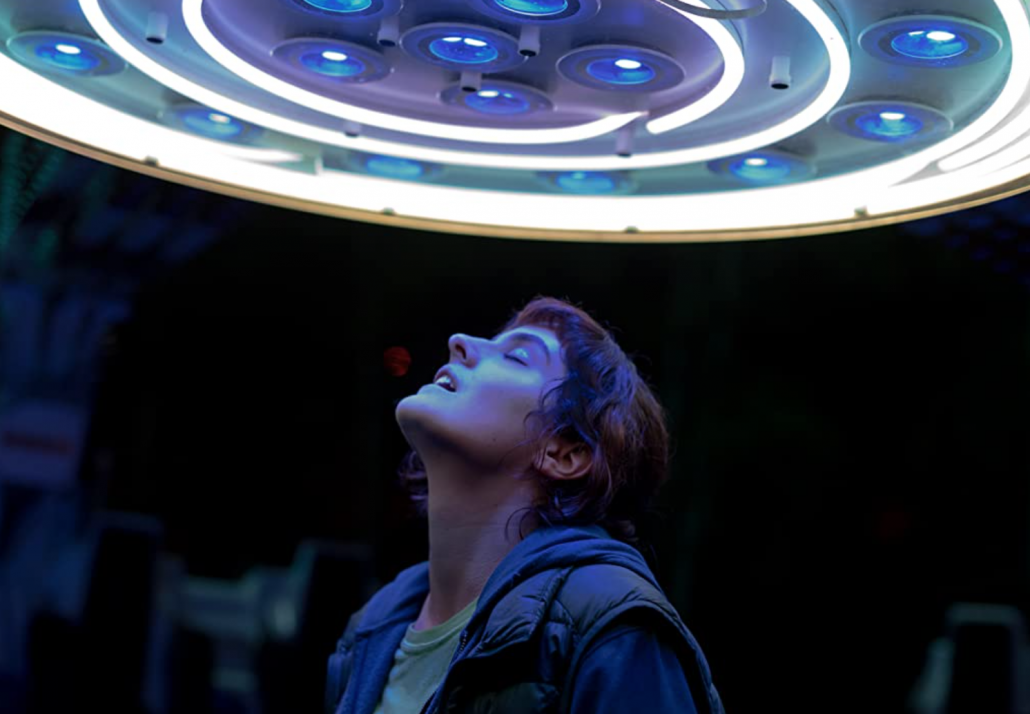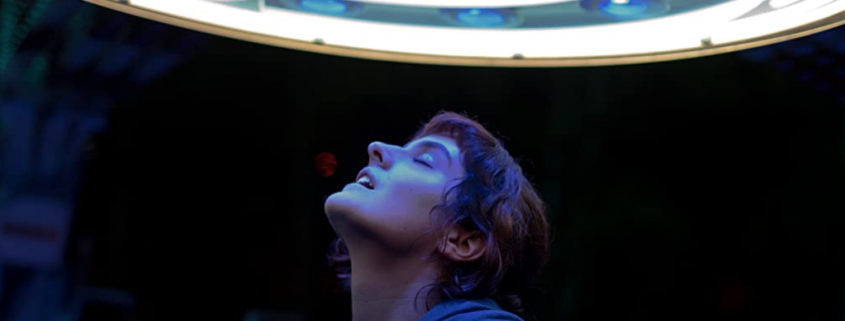REVIEW: ‘Jumbo:’ A tale of love that fails to amuse

Putting down a copy of Jane Austen’s “Sense and Sensibility,” mom Margarette (Emmanuelle Bercot) graciously accepts an invitation to meet her daughter Jeanne’s (Noémie Merlant) new beau.
Nearing her late twenties, Jeanne, described by producer Anais Bertrand as “crazy, very sexy, and a bit autistic,” had previously shown her affection for the trinkets she constructed into theme park attractions by hand in her room. Now working a job in the theme park she frequented as a child, Jeanne’s affection for the rides transforms into a new sense of feeling.
“Jumbo,” an early directorial attempt by Zoé Wittock, begs you to visualize the silky smooth feeling of cold metal — the low hum of a machine whirring to life. Jeanne feels it so rapturously in the theme park that the new flame she invites her mom to meet returns that warmth with an assortment of red lights.
The love affair begins as Jeanne hand-cleans the new ride in the park, wiping each expanse of metal and plastic that responds back with a flash of light, a spin of seats. She feels something for this machine, who she names Jumbo because it fits better than its given branding — “it’s not about sex, it’s something else.”
The something comes in a scene of blinding white, where Jeanne is enveloped by the true essence of Jumbo, its love (and its oil). Her response is sexual gratification, and the openness Jeanne exudes in sharing this new relationship with her mother is immediately stifled.
The mother-daughter relationship never comes to any meaningful heartfeltness, with Margarette’s hypersexualized behavior and uncensored conversations with her daughter playing for the occasional laugh (if you can manage it). When Jeanne tells her mother about her feelings for Jumbo, the descent into outright cruelty comes at every instance of confused honesty from Jeanne, who’s trying to make sense of sexuality but needs no explanation of its partner in sensuality. Suppose Bertrand or Wittock had been any more careful in the construction of Jeanne’s character, there could have been something to glean about unconditional support in a parent-child relationship or healthy conceptions of love and sex.
Merlant does what she can with that blank slate, bringing the light touches and whispers of love back from “Portrait of a Lady on Fire,” all while her emotional and literal nakedness is left to the will of the camera and the gaze of her mother and the men that impose what the “right” expressions of sexuality are.
The likening of an amusement park ride to a lover rather than a giant vibrator is not all drama, though. The French openness of sexuality meets a Jean-Pierre Jeunet weirdness that another narrative just can’t create (which, apparent in this case, is based on a true one). The hints of comedy are too brief to forget the overwhelming feeling of escapism that the film invokes and then unknowingly projects onto you, and you’re left in a void of feeling — the exact opposite of this film’s foundation.

